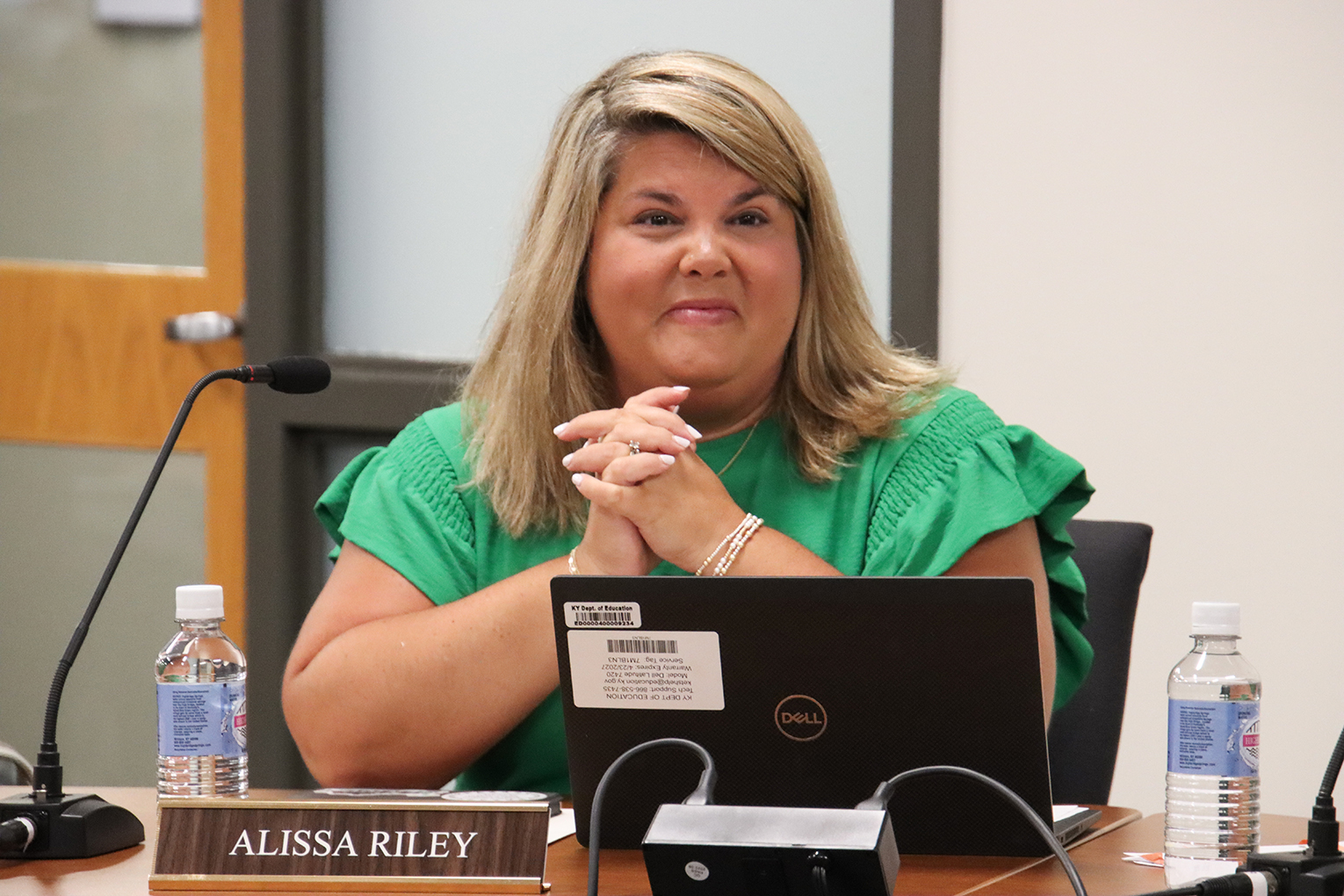“The phoenix, Hope, can wing her way through the desert skies, and still defying fortune’s spite; revive from ashes and rise”
— Miguel de Cervantes
 By Leah Turner
By Leah Turner
Leah.turner@wayne.kyschools.us
I live and teach in a little community in south central Kentucky that houses the majority of Lake Cumberland. We have thousands of tourists who visit our community April through October and say, “Oh what a lovely place. It must be nice to live here year round.”
What they don’t see is that my county is economically stagnated and our stakeholders’ attitudes reflect that economic status.
Twenty years ago, we were economically stable with specialized jobs in the houseboat industry and new industries like American Woodmark, a national kitchen cabinet factory, and Cobb, a chicken production company. Long-standing industries like Belden, a wire and cable company, were humming away. Our tax base was large and the budgets of our schools reflected that growth.
Then the bottom of the national economy fell out and our community fell victim to that downturn. Jobs that had existed moved elsewhere and empty buildings now beg for use and productivity again. The culmination of all these events spelled trouble for Wayne County.
Unemployment rates soared. Parents lost jobs. More people than usual turned to the welfare system for help. Drug usage within the community began to rise.
Those problems began to filter into our schools more often than they had before. Add in the shrinking school budgets and you have a recipe that deeply affected the academic programs offered, the quality and quantity of school staffing and the overall attitudes toward teaching and learning among our students and parents.
In recent years, we have seen many effects from all of these events. We face barriers now in our schools that didn’t exist 20 years ago. In 23 years, I have seen parental support for teachers and the mission that we’re trying to accomplish diminish considerably. As teachers, we now handle more social problems than before in our classrooms.
We currently face a generation of learners who have been saturated with immediate access to digital information and gaming that have zapped their desire to learn and ability to develop enduring skills. Sad to say, but it seems that self-motivation is a thing of the past.
Given the negative effects that the community experienced over the course of the economic downturn, we as teachers became apathetic. We began to feel hopeless. We began to fall away from owning our curriculum. We too began to say “they won’t get this anyway.” We felt hopeless and avoided the problems we faced as education practitioners. We began to lay blame on parents and students.
These variables have made teaching in our community a challenge. Our student performance data now shows that only 28 percent of the 6th-, 7th- and 8th-grade students read on grade level or above. The fact that our kids can’t read presents a huge barrier to learning. Add to that student apathy and lack of engagement and we have some monstrous hurdles to leap.
In order to combat these seemingly insurmountable hurdles, we initiated measures to meet our students at their point of greatest need — literacy. Wayne County Middle School began a new reading program through Success for All and Reading Edge in September that places students in reading groups with peers of their own ability level. Our goal is to create the conditions necessary for each student to grow toward grade level proficiency by the time they leave middle school.
In their new reading groups, students are placed with peers with like abilities and successes are celebrated no matter how small. Specific procedures and activities are instituted in and out of class to bring structure to help ensure student success.
As professionals, my colleagues and I are committed to our students. We are exploring different methods and techniques of engaging our students. We have a common goal: to provide our students with the best learning opportunities possible despite any economic barriers or variables outside of the control of the school system. We are determined to eliminate barriers that are causing our kids to fall behind.
Our county judge executive and mayor are actively working to secure new industries to breathe life back into our community so that our parents can get back on a solid economic footing. We are working to pull our parents back into our schools to let them see that we are trying to help them and our students. To create the change necessary for our students, it will take all members of the community working in concert with one another.
Leah Turner is a hybrid teacher, spending her time teaching 7th-grade language arts at Wayne County Middle School in Monticello. She also serves component coordinator, a position that focuses on the development of the Comprehensive School Improvement Plan and the successful implementation and completion of all Program Reviews. Turner is a veteran teacher of 23 years, a Hope Street Group Kentucky Teacher Fellow and an active member of the Innovative Teacher Leader Cohort with The Fund for Transforming Education.



Leave A Comment